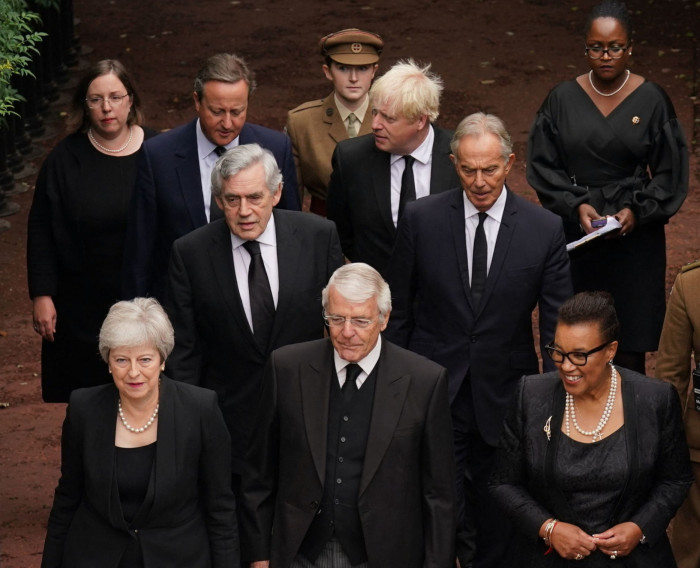Charles III was formally proclaimed king on Saturday at an Accession Council televised for the first time, in an indication of the new monarch’s determination to modernise and streamline the monarchy.
At the ceremonial event at the St James’s Palace in London, Charles swore to take on the “heavy responsibility of sovereignty”. Recalling the 70-year reign of his late mother, he pledged to “follow the inspiring example I have been set”.
The subsequent proclamation — made from the balcony of the palace to a trumpet fanfare and a rendition of God Save the King — marked a return to business after a day of mourning for Queen Elizabeth II on Friday, which included an emotional personal address from Charles remembering his “darling mama”.
Flags were flown at full mast at royal palaces across the British Isles to mark the proclamation at 11am, and will remain there until Sunday when the proclamation will be read in separate ceremonies in Scotland, Wales and Northern Ireland.
A second proclamation was due to be made at midday on Saturday at the Royal Exchange in the City of London.
The public proclamation followed the solemn ceremony of the Accession Council in the state apartments of St James’s Palace; such a ritual last took place in 1952 behind closed doors.
Penny Mordaunt, the cabinet minister who also holds the largely ceremonial position of Lord President of the Council, read out the formal announcement of the Queen’s death. Senior Privy Council members, including all six of the UK’s living former prime ministers, then looked on as the proclamation document for King Charles III was signed.
William, the new Prince of Wales, was first to sign, followed by Camilla, the Queen Consort, and later the recently appointed prime minister Liz Truss, as well as the Archbishop of Canterbury Justin Welby.
In Westminster, senior members of parliament who had previously sworn an oath of allegiance to Queen Elizabeth II will meet at 1pm in order to renew their allegiance to the crown, this time to the King.
The decision to televise the Accession Council was seen as a signal of the King’s desire to put his own personal stamp on the institution. The gathering was attended by around 200 of the most senior members of the Privy Council, which advises the monarch and dates back to Norman times.
On Friday the new monarch surprised well-wishers gathered outside Buckingham Palace by stopping his car and going on an impromptu walkabout, even receiving a kiss on the cheek from at least one mourner.
Later that evening the King gave a warmly received first televised speech that carefully mixed the political and personal, paying tribute to his mother while also signalling he will step back from the charities and causes he espoused as heir.
Echoing the pledge made by his mother before assuming the throne, the King promised “life-long service . . . Whatever may be your background or beliefs, I shall endeavour to serve you with loyalty, respect and love.”
Following the completion of the constitutional formalities in London, the new King will begin a tour of the UK next week, starting in Scotland where his mother died at Balmoral Castle, her summer retreat in Deeside.


As the ceremonies continued in London, preparations were already beginning in the Scottish capital Edinburgh to receive the coffin of Queen Elizabeth which is expected to arrive at the Palace of Holyroodhouse on Sunday.
King Charles is expected to be there to receive the coffin, which will be processed down the city’s Royal Mile to St Giles Cathedral, where the public will be able to file past to pay their respects.
Her body will be transferred to London on Tuesday where it will lie in state in Westminster Hall until her funeral, expected on Monday 19 September.
The King announced that the day of the funeral will be a Bank Holiday across the United Kingdom.
Constitutional experts said the death of the Queen in Scotland, where a Scottish National party government is currently agitating for a second independence referendum, could provide the King with an early opportunity to build on the popularity enjoyed by his mother in the country.
Credit: Source link















